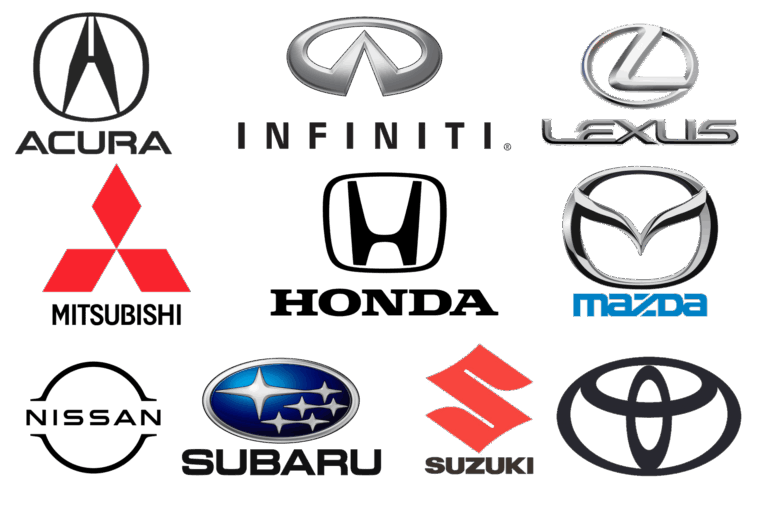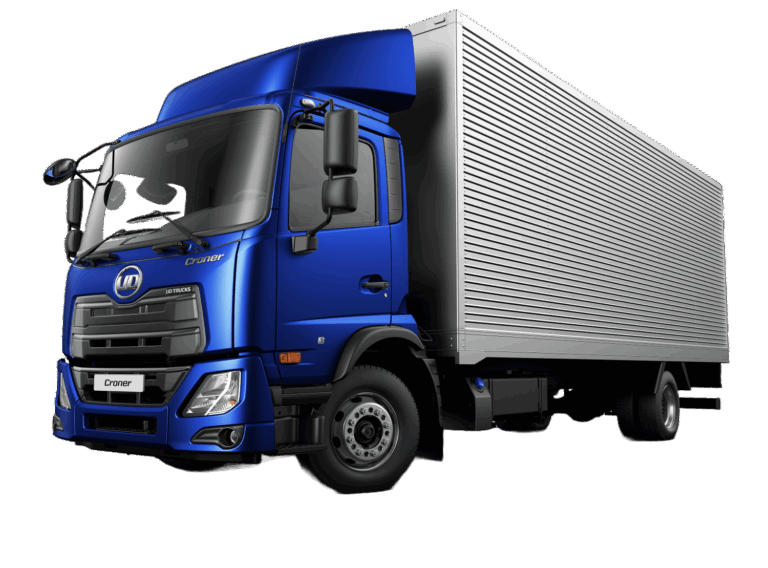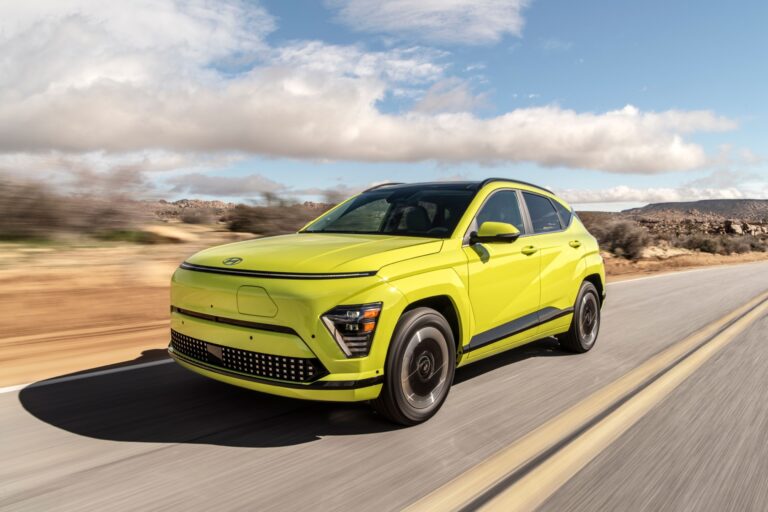Best Replacement Car Battery Brand: Powering Your Drive with Confidence
Best Replacement Car Battery Brand: Powering Your Drive with Confidence cars.truckstrend.com
Your car’s battery is its heart, providing the initial surge of power to crank the engine and fueling all the complex electrical systems that make modern vehicles function. When this vital component falters, it can leave you stranded and frustrated. Choosing the "best" replacement car battery isn’t just about picking the cheapest option; it’s about investing in reliability, performance, and peace of mind. The ideal battery will seamlessly integrate with your vehicle’s demands, withstand diverse climates, and offer a long, trouble-free lifespan. This comprehensive guide will help you navigate the myriad of options, understand key specifications, and ultimately identify the best replacement car battery brand for your specific needs.
Understanding Car Batteries: Key Specifications to Look For
Best Replacement Car Battery Brand: Powering Your Drive with Confidence
Before diving into specific brands, it’s crucial to grasp the fundamental metrics that define a car battery’s performance. These specifications will dictate how well a battery performs under various conditions and whether it’s suitable for your vehicle.
- CCA (Cold Cranking Amps): This is perhaps the most critical specification, especially if you live in a cold climate. CCA measures the battery’s ability to deliver current at 0°F (-18°C). A higher CCA rating means the battery can provide more power to start your engine in frigid temperatures. Always match or exceed your vehicle manufacturer’s recommended CCA.
- AH (Ampere-Hour) / RC (Reserve Capacity):
- Ampere-Hour (AH): Primarily seen in deep-cycle or AGM batteries, AH measures the total energy the battery can store and deliver over time. For example, a 100 AH battery can deliver 10 amps for 10 hours.
- Reserve Capacity (RC): RC measures how long (in minutes) a fully charged battery at 80°F (27°C) can deliver 25 amps before its voltage drops below a usable level (10.5 volts). This indicates how long your car’s accessories (lights, radio, etc.) could run if the alternator fails or the engine isn’t running. A higher RC is beneficial for vehicles with many electrical accessories or for stop-start systems.
- Battery Type:
- Flooded Lead-Acid (SLA): The most common and traditional type. These batteries contain a liquid electrolyte (sulfuric acid and water). They are affordable but require occasional maintenance (checking water levels in some models) and are more susceptible to vibration damage and acid leaks.
- Enhanced Flooded Battery (EFB): A step up from standard flooded batteries, EFBs are designed for entry-level start-stop vehicles. They offer improved cycle life and charge acceptance compared to traditional flooded batteries, making them more durable for vehicles that frequently shut off and restart the engine.
- Absorbed Glass Mat (AGM): In AGM batteries, the electrolyte is absorbed into fiberglass mats between the plates. This design makes them spill-proof, vibration-resistant, and virtually maintenance-free. AGMs offer superior cranking power, faster recharging, and a longer lifespan, especially for vehicles with advanced electronics or start-stop systems. They are more expensive but often justify the cost with their performance and durability.
- Lithium-Ion (LiFePO4): Though less common for mainstream car starting batteries due to higher cost, lithium-ion batteries are gaining traction, especially in performance vehicles and for deep-cycle applications. They are significantly lighter, offer a much longer cycle life, and maintain voltage more consistently. Their primary drawbacks are cost and specific charging requirements.
- Size/Group Number: This refers to the battery’s physical dimensions (length, width, height) and terminal configuration. Group numbers (e.g., Group 24, Group 35, Group 65) are standardized by the Battery Council International (BCI) to ensure proper fit in your vehicle’s battery tray. Always use the group size recommended by your car manufacturer.
- Warranty: A strong warranty (e.g., 36 months free replacement, 72 months pro-rata) indicates the manufacturer’s confidence in their product’s longevity and quality.


Top Contenders: Best Replacement Car Battery Brands Reviewed
While "best" can be subjective and depend on your specific needs, several brands consistently rank high in terms of performance, reliability, and customer satisfaction.
-
Optima Batteries:
- Known for: Their distinctive spiral-cell design (RedTop for starting, YellowTop for deep-cycle/starting, BlueTop for marine/RV). Optima batteries are AGM, spill-proof, and incredibly vibration-resistant.
- Pros: Exceptional cranking power, long lifespan, fast recharge, excellent performance in extreme temperatures, maintenance-free, ideal for high-performance vehicles, off-roaders, or those with extensive electrical accessories.
- Cons: Premium price point, specific fitment for some vehicles due to unique shape.
- Ideal for: Enthusiasts, off-roaders, vehicles with heavy electrical loads, anyone seeking ultimate reliability and performance.
-
Interstate Batteries:
- Known for: Widespread availability, strong reputation for reliability, and a comprehensive product line that caters to various vehicle types and budgets.
- Pros: Excellent nationwide warranty and support network, reliable starting power, good value across their range (MTP, MTZ AGM), long-standing brand trust.
- Cons: While reliable, they might not offer the same cutting-edge performance as some premium AGM brands in extreme conditions.
- Ideal for: Most mainstream vehicles, drivers looking for a dependable, widely supported battery at a competitive price.
-
DieHard (Advance Auto Parts/Sears):
- Known for: A venerable name in car batteries, now primarily sold through Advance Auto Parts. DieHard offers various tiers, from standard flooded to premium AGM.
- Pros: Long history of reliability, good performance metrics (especially the Platinum AGM line), widely available, strong warranty.
- Cons: Quality can vary slightly between different tiers; some models might be manufactured by different suppliers.
- Ideal for: General consumers looking for a reliable battery from a trusted brand, with options for both budget and premium performance.
-
ACDelco:
- Known for: Being the original equipment (OE) manufacturer for General Motors vehicles, but also producing batteries for a wide range of makes and models. They offer various lines, including Professional (flooded) and Advantage (AGM).
- Pros: Reliable performance, good value, often a direct fit for GM vehicles, extensive distribution network.
- Cons: May not always be the top performer in extreme metrics compared to specialized brands, but offers consistent quality.
- Ideal for: GM vehicle owners seeking an OE-quality replacement, or anyone looking for a dependable, well-regarded battery at a fair price.
-
EverStart (Walmart):
- Known for: Being Walmart’s house brand, offering highly accessible and budget-friendly options. They provide both standard flooded and AGM batteries.
- Pros: Excellent affordability, convenient availability, decent performance for the price point, satisfactory warranty.
- Cons: Performance metrics might be lower than premium brands, lifespan might be shorter in demanding conditions, customer service relies on Walmart’s general service.
- Ideal for: Budget-conscious buyers, older vehicles, or those who prioritize convenience and cost-effectiveness.
Factors to Consider When Choosing Your Best Battery
Beyond brand reputation, several practical factors should influence your final decision:
- Vehicle Type & Requirements:
- Standard Cars: Most standard flooded or EFB batteries are sufficient.
- Luxury/Performance Cars: Often require AGM batteries due to higher electrical demands and sophisticated electronics.
- Trucks/SUVs: Benefit from higher CCA and RC for larger engines and accessory loads.
- Vehicles with Stop-Start Systems: Absolutely require EFB or AGM batteries, as traditional flooded batteries cannot handle the frequent cycling.
- Climate:
- Cold Climates: Prioritize a high CCA rating to ensure reliable starting power.
- Hot Climates: Heat is a battery’s worst enemy. Look for batteries with good heat resistance and robust internal construction (AGM excels here).
- Driving Habits:
- Short Trips/Infrequent Driving: Consider a battery maintainer/trickle charger to prevent deep discharge, especially with modern vehicles that draw parasitic loads. AGM batteries tolerate this better.
- Long Commutes: Most standard batteries will fare well, as the alternator keeps them charged.
- Budget vs. Longevity: While a premium AGM battery costs more upfront, its longer lifespan and superior performance often result in better long-term value, reducing the frequency of replacements.
- Warranty & Support: A good warranty (both free replacement and pro-rata) offers protection. Consider the ease of making a warranty claim and the availability of service centers.
- Installation (DIY vs. Professional): Some modern vehicles require battery registration with the car’s computer system after replacement, which typically needs specialized tools. If your vehicle has this feature, professional installation is recommended.
How to Maximize Your Car Battery’s Lifespan
Even the best battery brand can fail prematurely without proper care.
- Regular Testing: Have your battery tested annually, especially before winter or summer. Many auto parts stores offer this service for free.
- Keep Terminals Clean: Corrosion on battery terminals can impede current flow. Clean them regularly with a wire brush and a baking soda/water solution. Apply anti-corrosion spray or grease.
- Avoid Deep Discharges: Running your battery completely dead repeatedly significantly shortens its life. If your car won’t start, try to jump-start it immediately and then drive it for a sufficient period (at least 30 minutes) to allow the alternator to fully recharge it.
- Use a Trickle Charger/Maintainer: If you store your car for extended periods or drive infrequently, a smart trickle charger will keep the battery topped up without overcharging, extending its life.
- Proper Installation: Ensure the battery is securely fastened in its tray to prevent vibration damage. Terminals should be tight.
Challenges and Solutions
- Incorrect Fitment: Always double-check the BCI group size. An ill-fitting battery can shift, causing damage or short circuits.
- Sulfation/Corrosion: Regular cleaning and using anti-corrosion sprays on terminals can prevent sulfation, which hinders charging.
- Overcharging/Undercharging: A faulty alternator can overcharge or undercharge your battery, shortening its life. If you notice persistent battery issues, have your charging system checked.
- Environmental Impact: Car batteries contain hazardous materials. Always recycle your old battery at an auto parts store, service center, or recycling facility. Most places offer a core charge refund when you return your old battery.
Table: Representative Price and Feature Overview of Best Replacement Car Battery Brands
| Brand | Typical Battery Type | Common Group Sizes | Approx. Price Range (USD)* | Key Feature/Benefit | Ideal Use Case |
|---|---|---|---|---|---|
| Optima | AGM (RedTop, YellowTop) | 34, 35, 78, D34 | $200 – $350+ | High CCA, extreme vibration resistance, fast recharge | Performance, Off-road, Heavy Accessory Loads |
| Interstate | Flooded, AGM (MTP, MTZ) | 24, 34, 35, 65, 78 | $120 – $280 | Wide availability, strong warranty, reliable performance | Most mainstream vehicles, reliable daily drivers |
| DieHard | Flooded, AGM (Gold, Plat.) | 24, 34, 35, 65, 96R | $130 – $290 | Trusted brand, good performance across tiers, accessible | General replacement, good value for performance |
| ACDelco | Flooded, AGM (Professional) | 34, 35, 48, 65, 94R | $110 – $260 | OE quality for GM, dependable, good value | GM vehicles, reliable standard replacement |
| EverStart | Flooded, AGM | 24, 35, 51R, 65, 75 | $90 – $220 | Highly affordable, convenient, decent performance | Budget-conscious, older vehicles, basic needs |
| Bosch | Flooded, AGM (S4, S5, S6) | 48, 49, 94R, 95R | $150 – $300+ | European engineering, high cycle stability, reliable | European vehicles, demanding electrical systems |
Note: Prices are approximate and can vary significantly based on specific battery model, group size, retailer, and promotional offers. Always check current prices with your preferred vendor.
Frequently Asked Questions (FAQ)
Q1: How often should I replace my car battery?
A1: On average, a car battery lasts 3-5 years. However, this can vary greatly depending on climate, driving habits, and battery type. Regular testing can help you determine its health.
Q2: Can I replace my car battery myself?
A2: For many older vehicles, yes, it’s a straightforward DIY task. However, modern cars, especially those with start-stop systems or complex electronics, may require battery registration with the vehicle’s computer after replacement. If unsure, professional installation is recommended.
Q3: What’s the difference between CCA and RC?
A3: CCA (Cold Cranking Amps) measures the instantaneous power for starting the engine in cold weather. RC (Reserve Capacity) measures how long the battery can power essential accessories if the alternator fails or the engine isn’t running.
Q4: Is an AGM battery worth the extra cost?
A4: For vehicles with start-stop systems, heavy electrical loads, or those in extreme climates, an AGM battery is often worth the extra cost due to its superior durability, longer lifespan, faster recharge capability, and vibration resistance. For basic, older vehicles, a standard flooded battery might suffice.
Q5: How do I know if my battery is dead or dying?
A5: Common signs include slow engine cranking, dim headlights or interior lights, the "check engine" or battery warning light illuminating, or a clicking sound when trying to start the car. A professional battery test can confirm its health.
Q6: What does "group size" mean?
A6: Group size refers to the battery’s physical dimensions (length, width, height) and terminal location. It’s crucial to match your vehicle’s recommended group size to ensure the battery fits securely in the battery tray and the cables reach the terminals correctly.
Conclusion
Choosing the "best" replacement car battery brand isn’t about finding a single, universally superior product, but rather identifying the brand and battery type that best aligns with your vehicle’s specific needs, your driving habits, and your budget. By understanding key specifications like CCA, RC, and battery types, and by considering the reputable brands discussed, you can make an informed decision. Remember that a good battery, combined with proper maintenance, is an investment in your vehicle’s reliability and your peace of mind on the road. Don’t wait until you’re stranded to think about your battery; proactive research and replacement will ensure your drive is powered with confidence.






